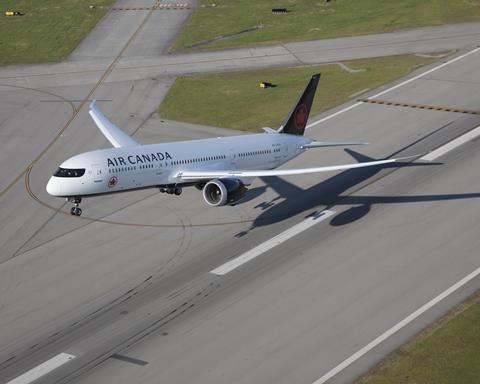Air Canada reports widespread air traffic reductions in the first quarter, particularly in US holiday hotspots and destinations throughout the Atlantic.
On May 8, Montreal headquarters disclosed $939 million ($674 million) in passenger revenue from the Atlantic segment (including long-haul flights to Europe, India, the Middle East and North Africa) down nearly 4% year-on-year.
Meanwhile, revenue from flights fell nearly 5% compared to the first three months of 2024, with Canada's domestic passenger revenues remaining largely flat in the previous year.
The results reflect the economic disruption and geopolitical uncertainty associated with President Donald Trump's World Trade War and the enduring threat of Canada's annexation. Air Canada also cites greater competition with the Indian subcontinent as affecting transatlantic revenues.
“We expect the market situation to remain volatile with an uncertain economic outlook,” says CEO Michael Rousseau. “In response, we are being carefully mitigated and focused on controllable factors such as cost management and strategic capacity adjustments to ensure strong performance of key financial metrics.”

Air Canada is also reducing expectations for the rest of the year. Currently, we expect full-year passenger capacity, measured in available seat kilometres, to grow by 1-3% year-on-year, rather than the company's previous estimates, rather than ASK growth of 3-5%.
Overall, airline capacity fell 0.4% compared to the first quarter of 2024.
Air Canada, along with other airlines in the Americas, reports that demand for premium travel has been stable, partially offsetting declines in main cabin bookings.
In particular, the airline's first quarter freight revenue increased year-on-year as “shippers increased their activities to advance tariff deadlines and changes to the tax exemption rules for low-value goods.”
“The first quarter of 2025 was characterized by declarations and uncertainties regarding the imposition of US tariffs and related measures,” Air Canada says. “This has impacted the demand for air services, mainly for US routes, and especially for US leisure destinations, along with the weakness of the Canadian dollar against the US dollar.”
Air Canada reported a loss of $102 million in the first quarter, compared to a loss of $81 million over the same period last year.
The company's first quarter revenue fell approximately 1% year-on-year to $5.2 billion.
Air Canada executives will go into more detail about the company's first quarter results and the remaining outlook during their revenue call on May 9th.


